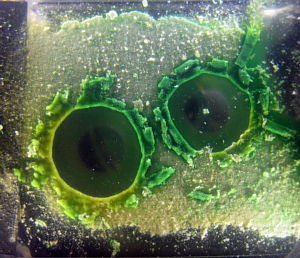 31st March – 2 April 2014
31st March – 2 April 2014
Jesus College Cambridge
The formation of unwanted layers of fouling deposits on the surface of process equipment and their removal, as well as the attachment and inactivation of associated microbiological species, is of critical importance in the food industry. Fouling is prevalent in heat transfer devices, evaporators, membrane separations and distribution lines. Hygienic design, operation, maintenance and assurance is a multi-disciplinary field lying at the interface between life sciences, physical sciences and engineering.
Most food production processes employ water-based techniques for cleaning. The need to minimise water consumption, energy use and reduce the environmental impact of cleaning operations is increasingly important. Achieving ‘green cleaning’ requires quantitative understanding of the mechanisms involved in both fouling and cleaning.
Modern measurement techniques and surface technologies mean that we can measure and control much more than ever before. The aim of this conference is to bring together those active in the area from different disciplines and the food industry to (a) report on developments in the area, (b) explore interactions with related fields (e.g. micro-fabrication, surface analysis) and (c) engage in discussions of the way forward for the industry.
The conference was held in Cambridge,UK, in spring 2014 and continued the series of meetings started in Lund in Sweden in 1981.
The conference proceedings have been published in book form and as a CD. Copies can be ordered from the Online Store.
Selected papers have been invited for submission to the January 2015 issue of the IChemE/EFCE journal Food & Bioproducts Processing.
The next conference in the series will be held in Lund, Sweden, from 17-20 April, 2018, organised by the University of Lund.

